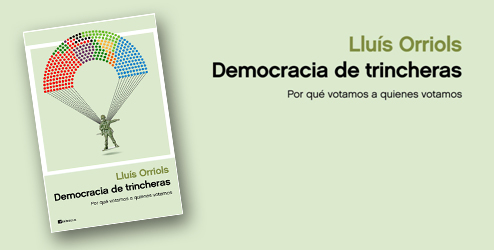The book “Trench Democracy” addresses, in an accessible way, voter behavior from the perspective of social psychology: how individuals gather information, how they construct their political reality, and how they make decisions. The book offers insight into the crucial role that identity plays in the functioning of democracy. Its main objective is to convince the reader that identities, especially partisan identity, generate both detrimental and beneficial effects on democratic quality. On the one hand, it illustrates the extent to which partisanship biases voters’ evaluations, eroding their ability to hold those in power accountable and generating polarized societies where citizens perceive politics primarily as trench warfare, a conflict of friends versus enemies, me versus them. On the other hand, partisan identity has beneficial effects on the system because it fosters strong and stable parties, something essential for the proper functioning of democracies. Ultimately, the book shows how identity, beyond its beneficial and detrimental effects, is inherent to human nature and, therefore, unavoidable in politics.


